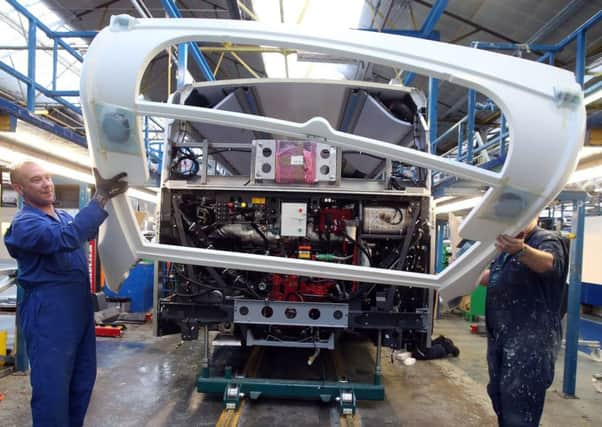Manufacturers aid economic growth but worries linger
This article contains affiliate links. We may earn a small commission on items purchased through this article, but that does not affect our editorial judgement.


Publishing its latest regional purchasing managers’ index (PMI) today, Bank of Scotland said businesses had built on the “solid start” shown in the opening month of the year.
However, it also pointed to mounting inflationary pressures and further job losses and noted that the growth remained weak in the context of historical data.
Advertisement
Hide AdAdvertisement
Hide AdThe index, which is based on the responses from some 500 companies, indicates the month-on-month change in combined manufacturing and services output. The seasonally adjusted figure rose to 51.7 in February, up from 51.2 in January and the strongest for 19 months. Any reading above 50 denotes expansion.
The bank said growth last month was centred on manufacturers, as firms raised production at the fastest level since January 2014.
Fraser Sime, regional director, Bank of Scotland Commercial Banking, said: “Scotland’s private sector businesses built on the solid start shown in the opening month of the year to record the fastest rate of output growth for 19 months.
“The upturn was driven by a strong performance in the manufacturing sector, where production increased at the fastest pace since January 2014. That said, the overall rise in activity was still only modest.
“Despite the region growing at a stronger pace, the growth is weak in the context of historical data. Businesses continue to record ongoing spare capacity, reflected in a further reduction in staffing levels, while inflationary pressures remain substantial.”
The report showed that inflationary pressures, rising wages, unfavourable exchange rates and higher raw material prices contributed to an increase in cost prices.
New business continued to increase, albeit at a weaker pace than at the start of the year, while there were job cuts for a second month.
Advertisement
Hide AdAdvertisement
Hide AdSime added: “With new business also growing at a weaker rate, firms will be wary that the upturn may soften if clients’ appetite for Scottish goods and services decreases further.”
Scotland’s economy has been trailing the growth in gross domestic product (GDP) enjoyed by the UK as a whole as it continues to feel the impact of the oil industry downturn and weaker productivity levels.
Keith Brown, secretary for the economy, jobs and fair work, said: “The latest Bank of Scotland PMI figures signal that Scotland’s private sector continued to strengthen in February with business output increasing at its quickest rate since July 2015, alongside a further rise in new business.
“While this expansion is to be welcomed, the report also indicates challenges facing Scotland’s labour market and continued uncertainty as the UK government prepares to trigger Article 50.”
